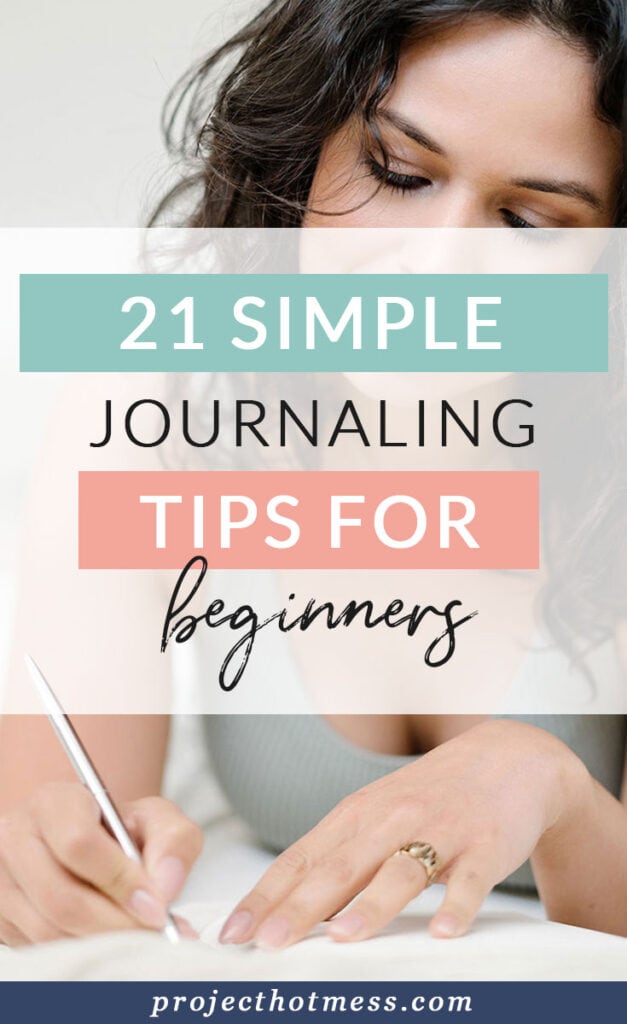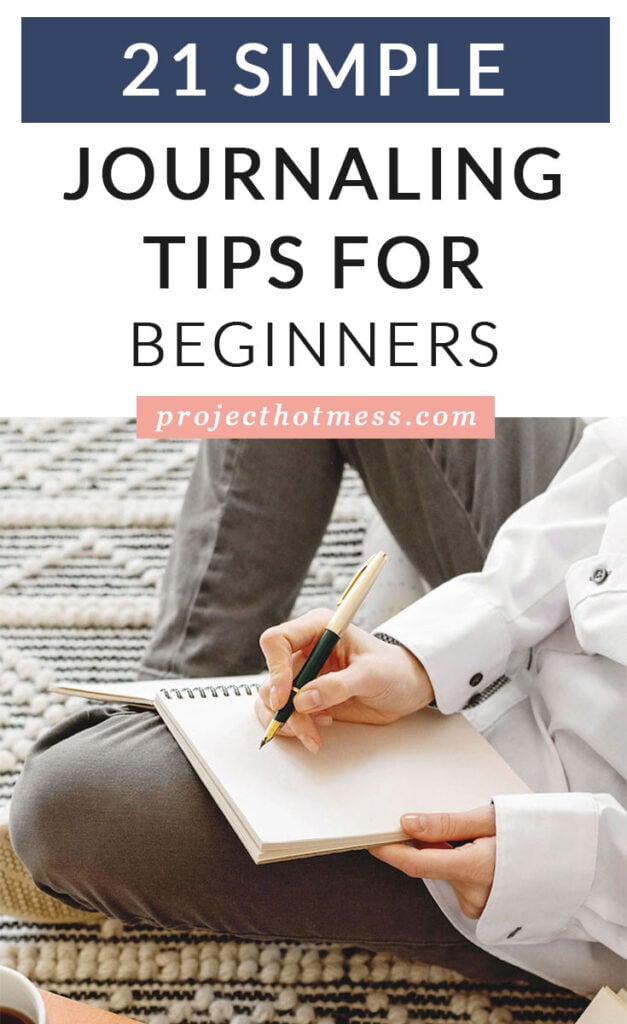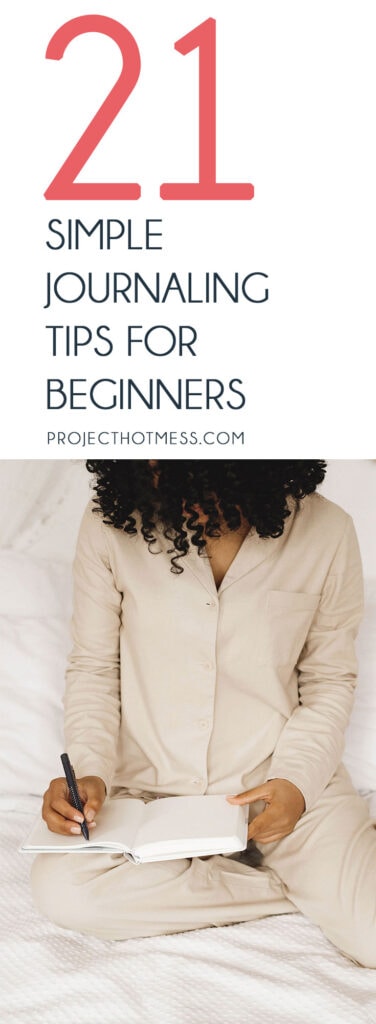21 Simple Journaling Tips For Beginners (Daily Journal Habits)
Whether you’re new to journaling, or you’re a seasoned writer, sometimes it’s easy to forget the basics of journaling and just how effective it can be.
There are times when getting back to the simplicity of journaling practice is the best way to go, which is why I’m sharing with you my journaling tips for beginners, which are also beneficial for those who have been journaling for a while.
You might find that when you’re starting out with journaling, or when you’re trying to regain your daily journal habits, removing distractions, and focusing on the little things can really make a difference and take your journaling skills up a notch.
Journaling can be such a helpful tool in personal growth, and there are so many different ways to help you establish your new habit.
Whether you use a journal prompt, write on a daily basis, create a gratitude log or daily log of good things that happen to you, write with a little time or a lot of time, develop your expressive writing, or write in dot points, there are so many benefits to journaling and there’s no right way – there’s just your way.
Here are some of the best journaling tips for beginners that you will find useful and can add to your journaling time:
1 – Create A Journaling Goal
Creating a journaling goal might sound obvious, but it’s one of those simple things that can have an enormous impact on your daily journal practice.
Having a journaling goal helps you start off strong and gives you something to look forward to as well as building motivation for the day so you want to get started as soon as possible.
Whatever your goals are for this journaling practice time, keeping them in mind will help you stay focused and enjoy doing it.
Your journaling goals might include:
– Offering gratitude and appreciation
– Journaling for a set amount of time
– Writing down your dreams, aspirations, and goals
– Keeping track of your physical health
And whatever you choose to do with these journal entries is up to you. Just remember that the more specific you are with your goal setting, the better it will be for you to meet your daily journaling goals.

2 – Take Your Journal And Pen Everywhere
Taking your journal with you everywhere is one of the best ways to keep up a regular daily journal habit because there’s nothing that stops an opportunity to write from happening.
Having your journal and pen with you is like having a conversation buddy on standby so you don’t have to worry about whether or not now is the right time to write because now is always the perfect time.
If you don’t like carrying a pen and journal with you, look into digital journaling apps to keep track of your daily journaling habit, even if it’s just for a few minutes. You can use the apps to create drawings or write down ideas, thoughts, and plans for later on in your journal when you get home.
3 – Give Yourself A Time Limit
Setting yourself a time limit for how long you’re going to spend writing in your journal can be a big help, especially if you’re used to journaling for long blocks of time.
Having a time limit can also encourage you to get right into what you’re writing about and your thoughts because there’s a sense of urgency that makes it easier to focus.
Another benefit to having a time limit is that it stops you from going on and on about a subject because there isn’t enough time.
Examples of setting a time limit for your journaling session include:
– Spending ten minutes writing in your journal and brain dump everything you can, no stopping, just a continuous stream of consciousness
– Writing for 20 minutes, pausing to stop and think when needing to.
– Journaling for an hour straight (if you’re super keen or have some big mental hurdles you’re working through… this is not necessarily something we’d recommend for beginners).
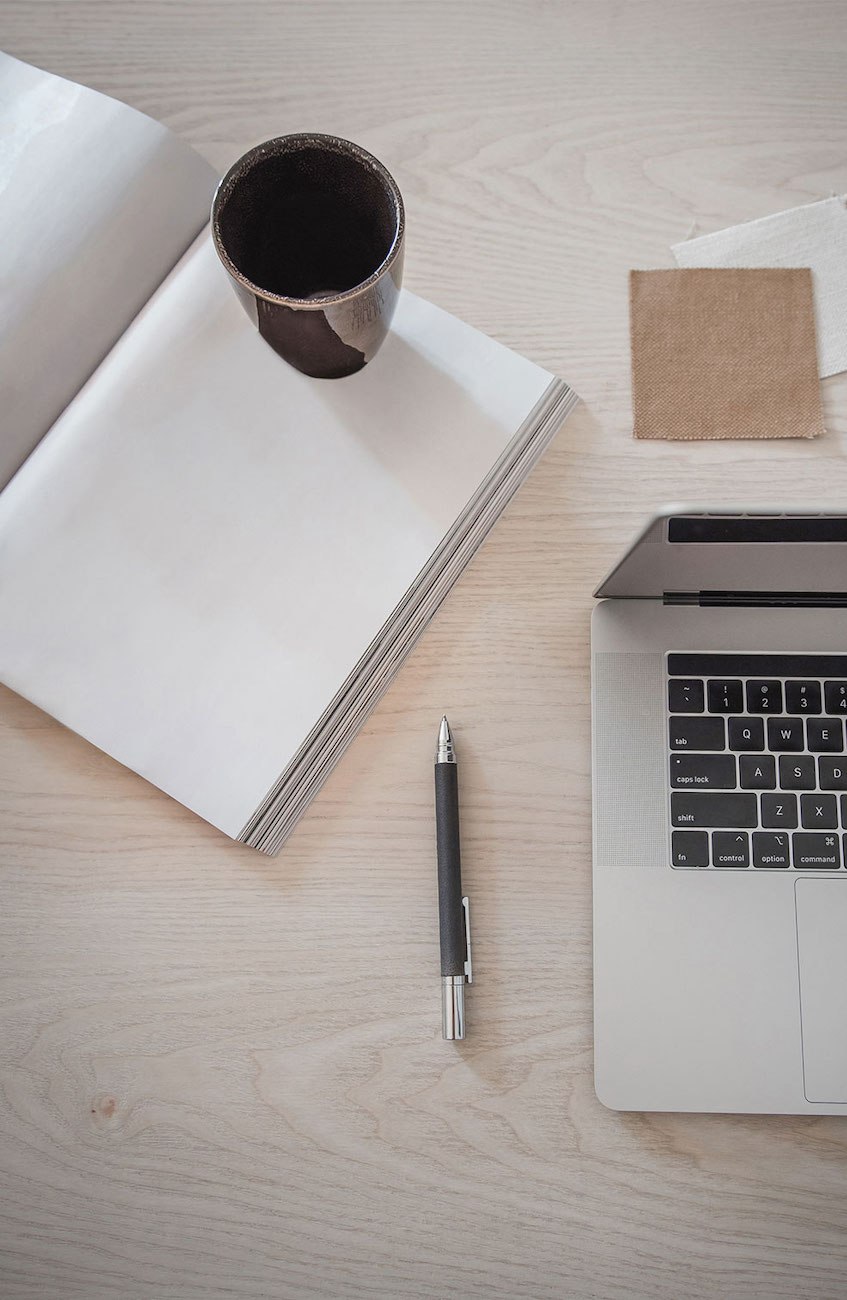
4 – Journal Prompts And Gratitude Lists
Using journal prompts can be a great way to jump-start your journaling session, especially if you’re not sure what to write about or if you’re having a hard time getting started.
It’s also an excellent time-saver because all you have to do is read the prompt and get right into writing without having to think of or brainstorm ideas first. It can really take some stress out of writing for the first time in the morning.
Creating a gratitude list is another excellent journaling tip, especially if you’re used to writing about what’s going on in your life and how things are affecting you.
Writing a gratitude list focuses your attention on all of the positive things that have happened that day or even that week because it makes you look at the bright side of things.
This isn’t a journaling method you need to use each day (although focusing on what you are grateful for each day is a great way to create more mindfulness in our lives) but can help if you’re feeling stuck with your journaling practice.
Using a gratitude list like this is also a great way to reframe your mindset if you’re finding yourself in a particularly negative state of mind.
5 – Use A Pen That Feels Good In Your Hand
Using a pen that feels good in your hand can not only help you to enjoy writing more, but it’s also a good way to avoid writer’s block because it helps you get into a rhythm and flow when writing. The right pen can also help you to write for longer periods of time, because it’s less tiring.
If writing is really not your thing and you’d prefer to type, feel free to do that too! There’s no right or wrong.
I’ve seen people print journal pages, use dedicated journal notebooks, use their iPad and pen, and type onto their computer – this is your journal, you write however feels most comfortable for you.
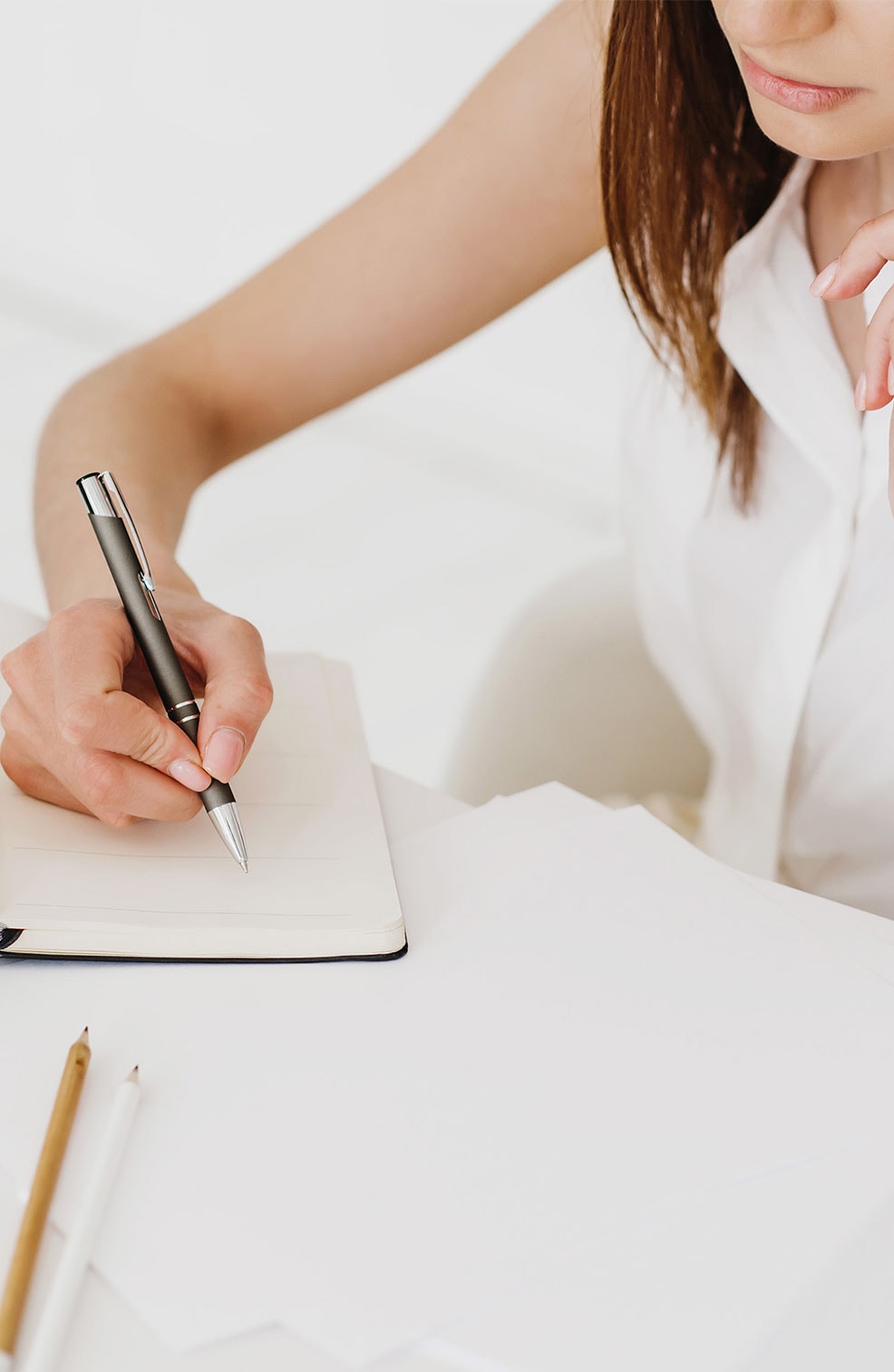
6 – Engage All Of Your Senses
Using all of your senses is a great way to engage yourself in what you’re writing about and it can also help you remember things so they come alive on the page.
All you have to do is describe what you’re seeing, hearing and feeling as well as what it smells like and tastes like – these sensory memories help us to register events in our brain and give them more meaning.
If you’re finding this too difficult right now, just stick with the senses of sight and sound for now. You can always come back to using taste and smell later once journaling becomes more natural to you.
Simply start with:
- Right now I’m looking at….
- Right now I can hear…
- Right now I can feel…
Or if you want to change it up you can start with:
- I love seeing… because…
- I love hearing… because…
- I love feeling… because…
- I love the taste of… because…
- I love the smell of… because…
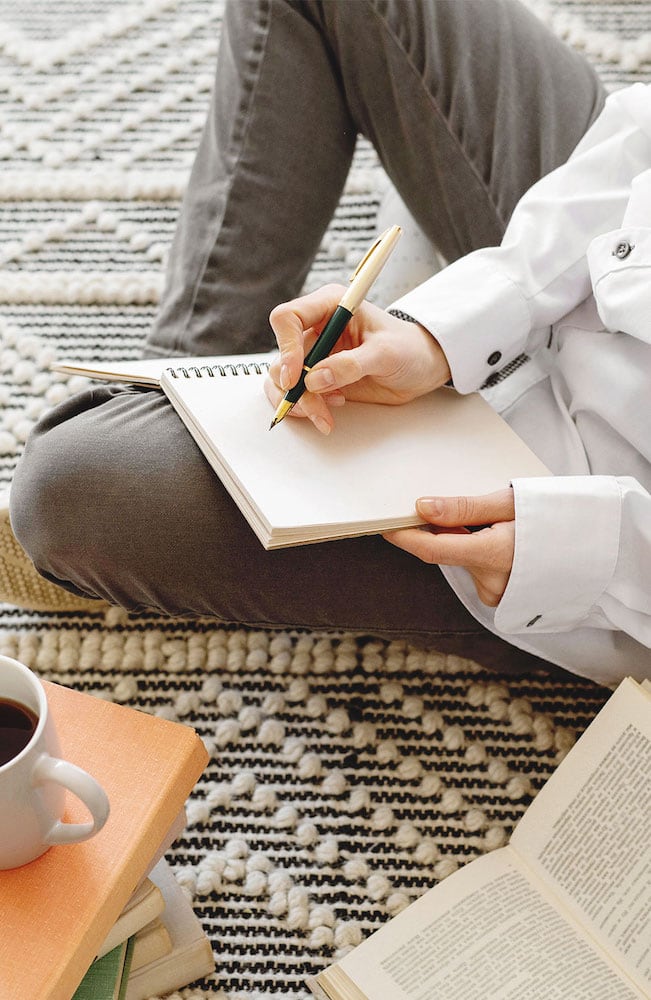
7 – Journal Before You Go To Bed At Night
Writing in your journal before you went to bed is a great way to clear your head and leave any emotional baggage behind for another day.
If you’ve had a really busy or stressful day this is an excellent way to de-stress because it can help you work through some of those feelings before they affect your sleep (which, as we all know, doesn’t help with productivity and energy levels!).
Start with writing three things you are grateful for or what you achieved that day, followed by any questions you have about the day.
For example:
Today I’m grateful for…
Today I’m most worried about…
This helps us to reframe our thoughts in a productive way and clear out anything negative before we go to bed.
8 – Or… Journal Before You Get Out Of Bed In The Morning
I know this might sound like the last thing you want to do when you get up in the morning but journaling first thing is a great way to start your day.
This is because writing helps release negative thoughts and feelings out of our brains so we can feel better throughout the day.
If you’re not a morning person, journaling first thing can be an excellent way to motivate yourself to get out of bed so you feel more productive, and can be a great way to kick start your productivity for the day.
Adding journaling to your morning routine can also help you to set out goals for the day and give yourself some structure so you feel more in control of what happens.
Or, if you don’t want to write about your goals first thing, just write about how you’re feeling right now. This will help center yourself and be more mindful throughout your day.
Start with something like:
Today I’m feeling…
Or if you really want to seize the day you can start with:
Today I intend on doing…

9 – Set Aside Some Quality Journaling Time
Regardless of when you choose to journal, setting aside quality journaling time is important because it helps you to focus on the present moment, which enhances your ability to think about what’s happening right now.
Your mind can also wander less when you’re focused on one thing only so the benefits you receive from your dedicated journaling time are more obvious.
This also creates a habit where you take time for yourself, which as we all know is an important step in self-care and in learning how to put yourself and your needs first.
You can also keep your journaling time sacred so you feel free to be as expressive as possible.
This means no one can disturb you or ask you anything during this period because it helps to clear your mind, unify yourself and give you the opportunity to nurture yourself.
Journaling for just ten minutes at a fixed time each day can have a huge impact on your life so it’s definitely worth trying.
10 – Open Your Journal On A Blank Page
There’s something about starting on a new page that feels so good to me, I guess because it’s a clean slate.
Opening up your journal on a blank page is also freeing because you have an entirely new page to yourself, where anything goes!
It doesn’t matter if you want to start by drawing something or writing random thoughts about anything – just go for it.
If you do want to start writing about something specific, or draw something especially for your journal, make sure you dedicate an entire page for it.
This is also a safe space where you can let yourself be completely free and explore any idea without judgment because no one else will see it.

11 – Don’t Focus On The Quality Of Your Writing
It’s important to remember that journaling is supposed to be fun, so there’s no expectation of how good your writing has to be. The purpose of writing in your journal isn’t for other people to read it, it’s for you!
Don’t go back and edit yourself, don’t worry about whether or not what you’re writing makes sense, just let the words flow from your mind to the page.
You’ll find the more you practice journaling, the easier you will find it and you’ll figure out your own writing groove.
Plus, your journal is for you, the best thing is that no one ever has to read your journal entries or see your journal. It’s your own private space, closed off to the rest of the world.
12 – Eliminate Distractions While Journaling
Eliminate any distractions while you’re journaling because this helps to engage yourself fully in the moment.
You don’t want to be worrying about what’s happening in your Facebook feed or if you have new Instagram likes – this is meant to take care of you, so focus on it.
Turn off all notifications, switch your phone to silent, turn the TV off and pop on some lovely meditation music (or enjoy the quiet) as you write.
Journaling without distractions is also a beautiful way to spend your alone time – it’s not uncommon for journaling to have therapeutic effects.
13 – Write Your Own Journaling Prompts As They Come To You
My most used app on my phone by far is my Notes app and I use it to write journaling prompts for myself too.
Often when I’m out and about a journaling idea will come to me but I may not have the time to write it then and there. Instead, I pop it into my phone as a note and reflect on it later.
You can create your own Notebook in Notes (or whatever your preferred note-taking app is) and keep all of your journal ideas in one place.
Keeping track of your journaling ideas can help you especially if you’re focusing on a specific problem that you want to journal about, or if you’re finding it difficult to come up with ideas whenever you sit down to journal.

14 – Make Use Of All The Journaling Tools You Have (e.g., A Pen, Paper, Etc.)
If you’re new to journaling and haven’t quite figured out your journaling medium, or if you just want to try something new, take some time to experiment and make use of the journaling tools you have available to you.
When we think of journaling we often think of writing with a pen into a notebook, but there are so many other ways to journal.
For example, you could try painting a picture, painting a word and then writing around it, drawing graphics then writing words with them, you could paint a page and then write over it, you can type, draw, doodle, paint, or do just about anything creative in any medium you like.
15 – Find Out What You Get Out Of Journaling (e.g., What Are The Benefits?)
Journaling is an amazing tool that has so many benefits that you may not have even realized.
For example, journaling is great for mental health because it helps you to manage your thoughts and emotions, and writing down what’s going on in your head can help clear any negative or overwhelming feelings.
Journaling also helps us to problem solve and figure out how we’re feeling and why we’re feeling that way which allows us to grow and develop ourselves.
Using a journal regularly also allows us to process our thoughts and experience more compassion for ourselves, learn from our mistakes, and work towards self-improvement.
Figure out what YOUR benefits are from journaling and remind yourself of these each day in order to keep up your journaling practice and motivate you to keep going.
It’s also a really good practice to be self-aware and understanding what journaling does for you can help with this as well.

16 – Create A Journaling Routine
We’ve already mentioned creating a routine around when you journal, but creating a routine around how you journal can be incredibly beneficial as well.
Whether it’s making a coffee or a tea for yourself, sitting in the same place, using the same journal, or even lighting a candle, putting on some music, and meditating first, creating a whole routine around your journaling habit will help you to keep it going and can help you to look forward to your journaling routine each day.
You could also use gratitude journals as part of your journaling routine. A great idea for this is to use morning pages or nighttime pages to write a simple list of what you are grateful for that day. Doing this on a regular basis can get repetitive so try to think past the obvious things you are grateful for and pay attention to the little things each day that make a big difference.
17 – Enjoy The Simplicity Of Journaling
When we first start to journal it’s easy to get overwhelmed because there’s a lot that goes along with it.
There are so many different things you can do with your notebooks and pens, but often when we overthink something, overcomplicate it or make too much of a habit around it – we end up not enjoying the simplicity of it.
So as you’re getting started, keep things as simple as possible, enjoy the simplicity of journaling and find out what works for YOU.
The important thing with journaling is to simply find a way that works for you, and helps you meet your journaling goals and helps you to enjoy your journaling experience.

18 – Write A Dream Journal
Writing dream journals is a really useful way of connecting with our subconscious, working through things that we’re not sure about and it can also help us to decipher the language of our dreams which is beneficial in so many ways.
Writing a dream journal can help you to become more aware of your thoughts, feelings, emotions and also your physical body because when you start to see patterns in your dreams it’s a sign that there is something going on with you physically, mentally or emotionally and writing this down can help you to sort through the problems.
19- Buy A Journal That You Really Like
One of the things that can hold us back from journaling is finding a journal that we just don’t like.
If you’re spending time writing in your journal each day, it’s important to find one that works for you and makes you feel good about using it.
Finding a journal that speaks to you emotionally will make writing in your journal more enjoyable and help you to look forward to writing in it each day.
It can be hard if you have certain ideas about what a typical journal looks like, but challenge yourself to find something that is eye-catching, interesting, or meaningful for you.
Using a beautiful notebook can be difficult but very much worthwhile if it helps motivate you to continue to journal.
Another tip is to have different types of journals for different journaling topics or if you want to explore a different type of journaling.
For example, you might have a specific journal for writing, a specific journal for drawing, or a specific painting journal. You may also have different journal topics like business, family life, general life, self-worth etc.
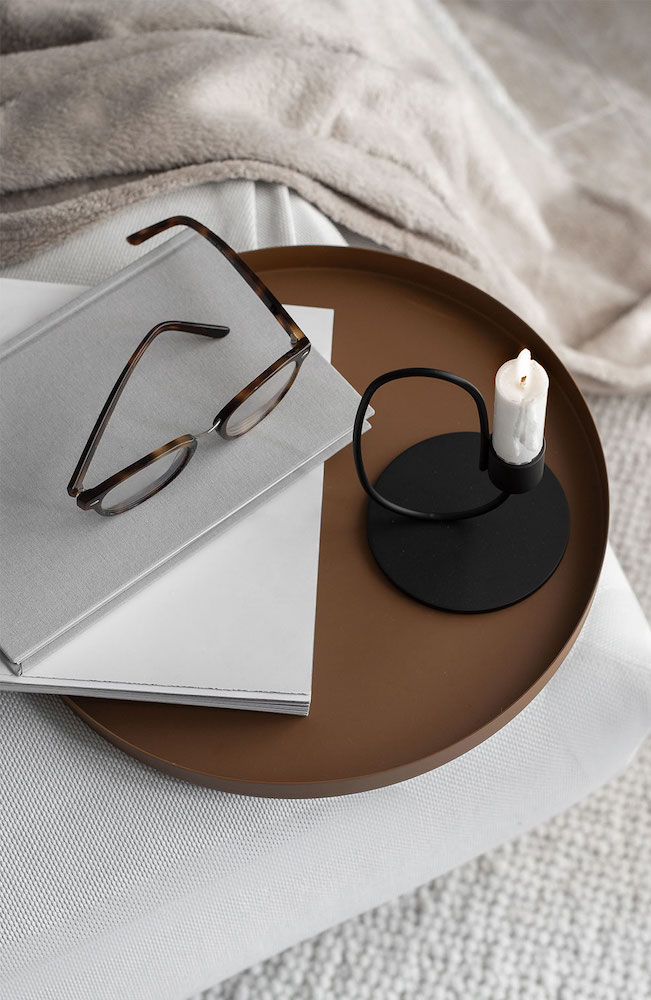
20 – Track Your Journaling Habits
Although we want to focus on the benefits of journaling and how journaling can help you, it’s also important to track your progress.
This helps us to stay accountable and allows us to see how often we’re actually writing in our journals each day.
You might find that you struggle more at certain times of year or that certain days or weeks might be harder than others.
By tracking your progress and looking at the times that you journal each day, it will allow you to adjust accordingly so you can keep up with your habit!
21 – Focus On The Basics
Like we mentioned before, we want to keep our journaling as simple and easy as possible.
We want to enjoy the process of journaling and not feel overwhelmed by it.
Keep your journal small, light, easy-to-carry around and focus on writing down only what you need at that moment – nothing more!
Journaling shouldn’t be seen as a chore or an obligation but rather something fun and another way to grow.
So keep your journaling simple, fun, and easy so it can be another great daily tool!

Tips To Start Journaling Right Now
The hardest part with journaling is simply starting, so take a moment to journal right now. Don’t overthink it or overcomplicate the process. So my one tip to help you start journaling right now is this…
Grab the closest piece of paper to you and write the following:
Right now, in this moment, I feel….
And let the words flow.
Remember, it doesn’t need to be perfect, there is no right or wrong, whatever you write is exactly what you needed to write and is perfect for you.
Journaling is a great way to get in touch with your thoughts, feelings and emotions.
The 21 tips we’ve provided should be helpful for getting started journaling or establishing new habits so that it becomes an integral part of your life and start seeing some of the amazing benefits journaling has to offer.



